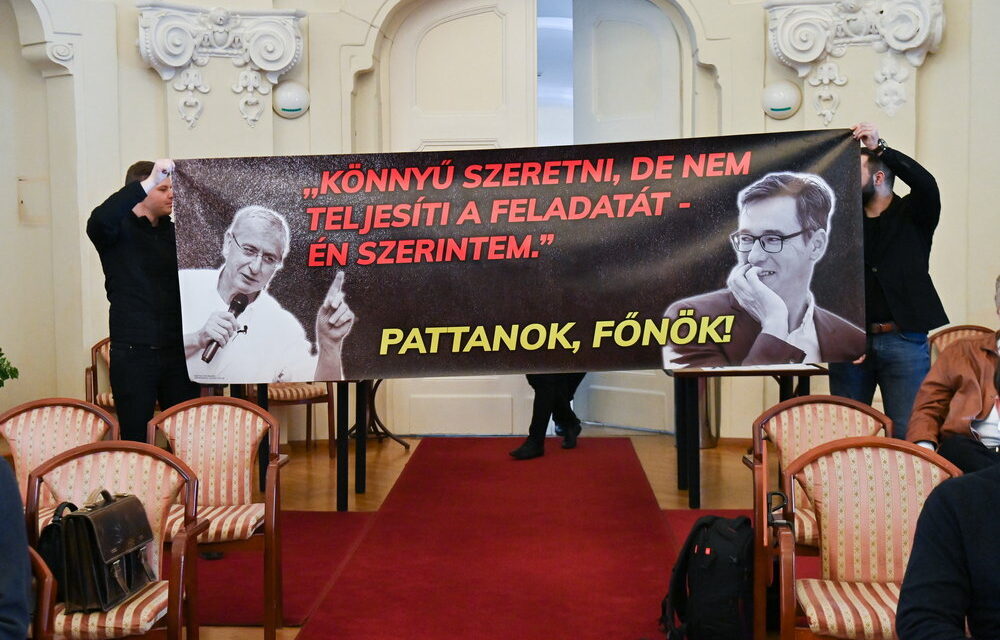Is it even possible to run Budapest the way the voters want?
The composition of the Budapest General Assembly developed very interestingly as a result of the landslide that occurred in the opposition field at the beginning of the summer. After a first glance at the composition of the board, it seems equally legitimate to ask what it is that the voters did not want? As, of course, it is also an exciting question, how will the political parties fulfill these wishes?
In any case, after the Tisza party appeared as a new player on the list in the capital, whose program for the capital and its politicians in the capital, apart from the Péter Magyar phenomenon, nothing can be known, it can perhaps be stated that the voters will support the coalition of DK and its affiliated parts that has governed the capital until now. it was voted down by a narrow 80 percent.
Perhaps it is not an exaggeration that Tisza voters did not want Gyurcsány almost as much as they did not want Fidesz.
Obviously, after all this, it indicates the consistent thinking of the citizens of Budapest that Gergely Karácsony, the man who, according to them, was not even there, survived the mayor's election, albeit with a few hundred votes. The mayor who functioned as the face of the DK coalition, which was voted down by almost eighty percent, in the previous five years. Karácsony's support increased by almost twenty thousand votes compared to five years ago. Logical. After all, the people of Budapest owe everything good to him, and everything else to the ugly Fidesz and the almost equally ugly Gyurcsány. Although previously, Gyurcsány and the DK did not bother the opposition voters in the capital before.
Gergely Karácsony came to Budapest as a conformist countryman and became a typical Budapest politician, not based on his place of residence and area of operation, but because he precisely meets the unarticulated and indefinable needs of the capital's electorate, which was created by post-postmodern politics.
I don't know if there has ever been a politician in Hungarian history from whom his supporters (if "voting for" is considered support in this context) did not expect him to do anything. From Christmas, apparently, all the "pesties" want is for them to be insulted, that life is difficult. Looking at the general assembly, it is obvious that he was not entrusted with much else. Unless we assume, or they assume, that the old-new mayor undergoes a metamorphosis, goes wild and suddenly starts working. So far there are no signs of this.
And life is hard, it's hot, there are traffic jams, public transport is sometimes crowded and dirty, and somehow lofty moral principles just don't want to prevail by themselves. What voter will can be extracted from this feeling of life? The intentions of those who voted for Fidesz and Mi Hazánk are easily recognizable. This narrow third of the electorate not only rejects the street theater of the left-wing feeling of life, institutionalized and presented with the help of dog poop and homeless people (who help recolor the dog poop in its material), but also yearns for some kind of order.
But the other two-thirds of Budapest voters also see the capital and district politics as national politics.
Your vote should always reflect the spirit of O1G. And this was much more evident in the spring of 2024 in a vote for Péter Magyar than in a vote for Gyurcsány. The opposition voters in Budapest suddenly discovered that Feri is Feri.
This is not good news for the owners who run the Tisza party either. The Tisza-DK coalition would spoil the feeling of life currently associated with the Tisza. The Tisza voters did not want a functional Budapest, but a series of confrontations expressing their "flood", during which all other opposition parties of Fidesz would surrender to them, the owners of the exclusive truth. Any political situation that suggests a bit of stability and functionality in Budapest and keeps Karácsony alive as a significant politician and Gyurcsány as a factor discourages Tisza voters and eliminates the appeal of the party's communication promising immediate political salvation. The Tisza party and the incarnation itself cannot agree either, because it would be equivalent to making a pact with evil for a significant part of its voters.
And finally, except for the dysfunctional Budapest Christmas, it is good for everyone (of course, if we apply the opposition's usual way of calculating that normality and order are the dictatorship itself). Fidesz voters can state with satisfaction the sad fact that everyone else is stupid except them. The voters of Tisza can stomp in the chaos and scream at each other at the séances that every missed bus, neglected park, underinvestment, unemptied garbage can, flowerless bee pasture and stray street poo, as well as the emerging homeless are the fault of Orbán and the old opposition. Gyurcsány can demonstrate again that without him there is no viable opposition in Budapest either.
The districts will get away somehow, Piko, Baranyi, Niedermüller will have just as striking a solution to everything as before. The publicly crying Gergely Karácsony will be the only news we can expect, which will be enough for him to survive politically.
Of course, we would like to see a Budapest general assembly majority dominated by Péter Magyar, in which the Feri's are also included, with out-voting dialogue parties, with the possible external support of Vitézy and the Dogs. They would surely be nice to each other.
Featured image: Demonstrators with banners at the session of the Capital Assembly at City Hall on April 26, 2023.
MTI/Noémi Bruzák













